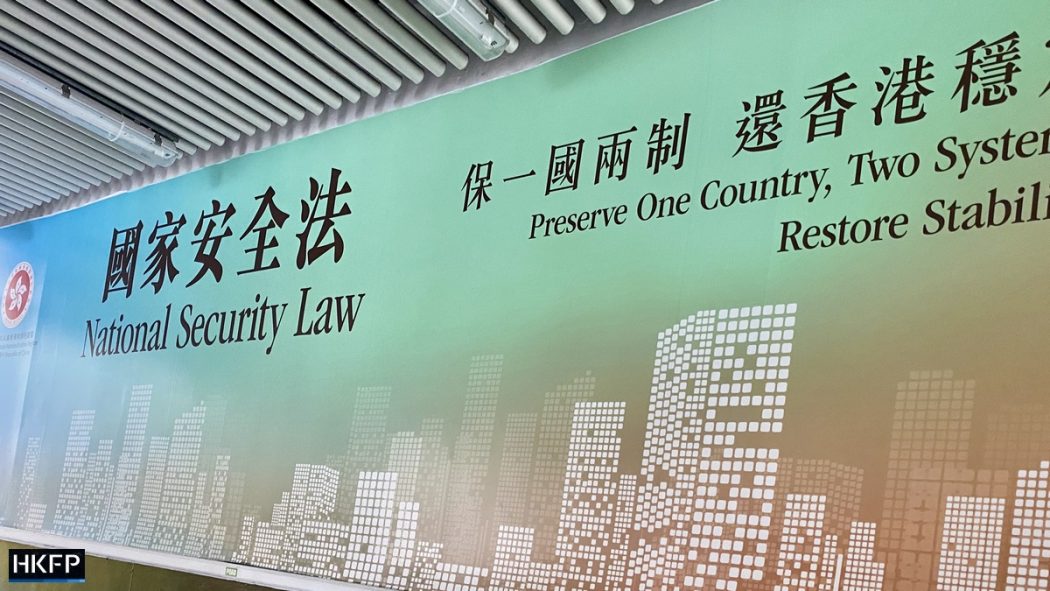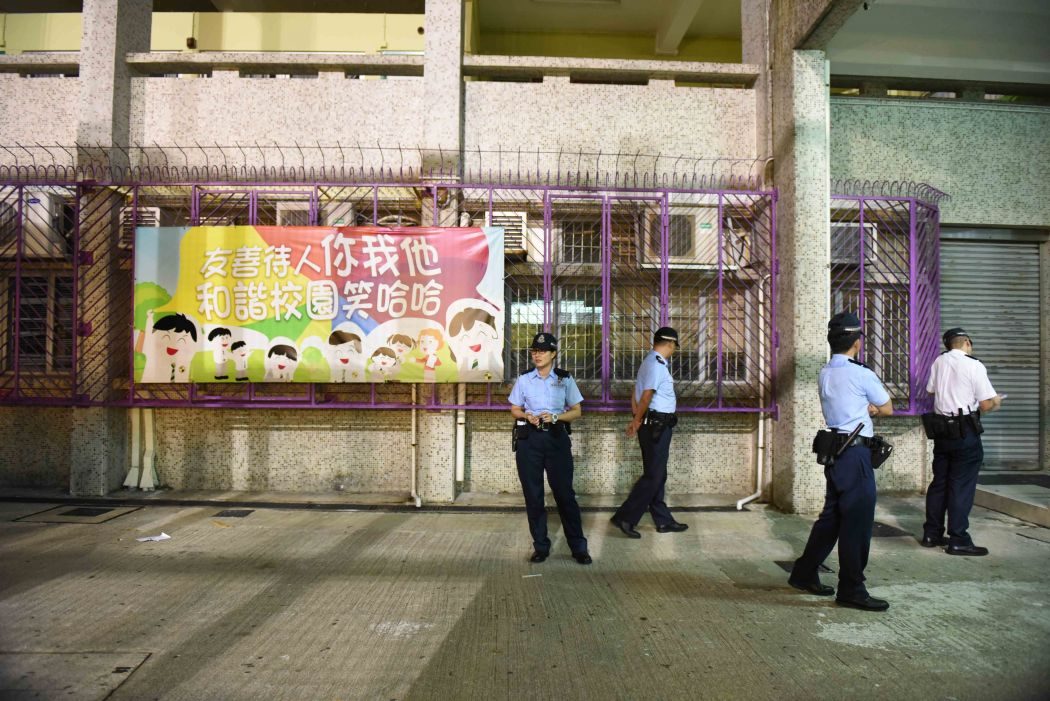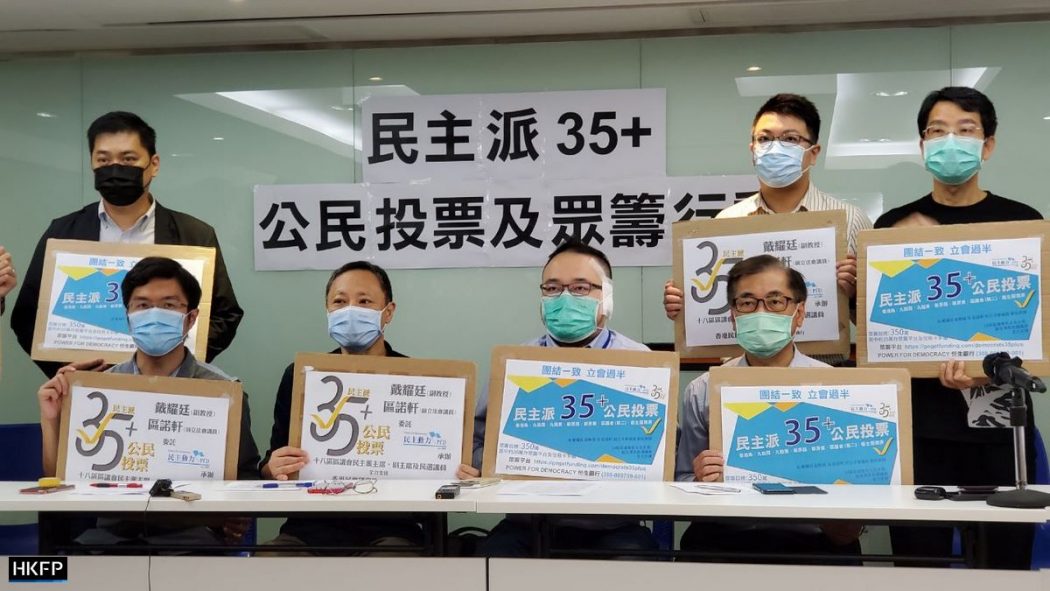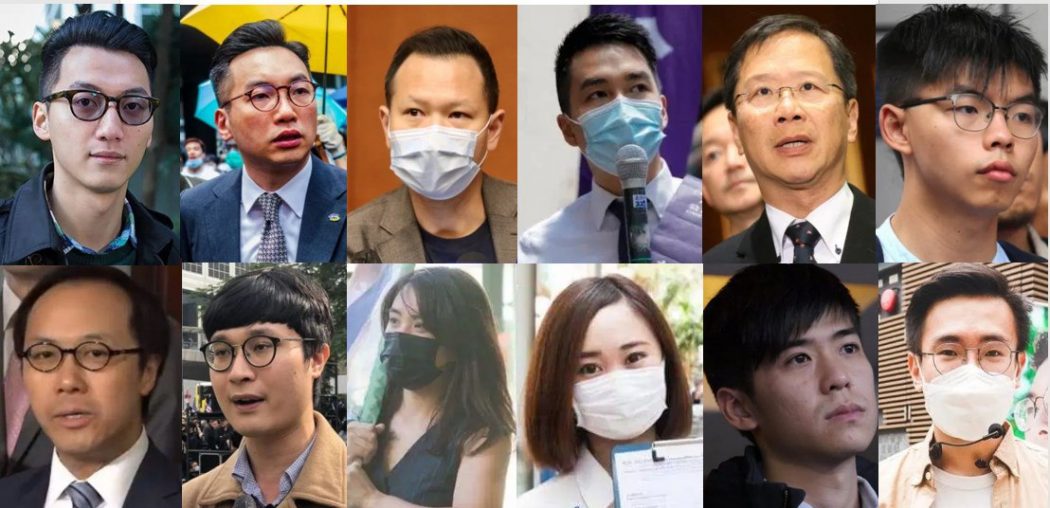Rarely has victory been transformed into defeat quite so quickly, but things move at high speed once Beijing takes charge.
The watershed event was Hong Kong’s new national security law, announced in late May, and promulgated by the central government close to midnight on June 30. The law went into effect on June 30, and from that day forward, as the unfamiliar routines of a security regime went into effect, all things political began to change.

There have been several arrests and police have issued a “wanted” list for six Hongkongers living in Europe and the US. They are wanted on suspicion of violating the new law.
Past actions are not supposed to signify since the law is not retroactive. The suspicion is that the wanted men may have continued to carry out activities criminalised by the law after it was enacted.
In Hong Kong, the first trial has just begun – that of a young man arrested on July 1 for displaying a banner that proclaimed last year’s favourite protest slogan: “Liberate Hong Kong, the revolution of our time.” The new law criminalises acts of secession, subversion, terrorism, and collusion with foreign forces. The slogan allegedly conveys secessionist intent.
How the new law’s promoters could have proclaimed – as they did throughout the month of June – that “only a very few” would be targeted is for them to explain. In fact, the spirit of the new law is being felt everywhere, and nowhere more so than in preparations for Hong Kong’s next legislative election – which impacts not just “a few” but every potential voter.
Probably one major reason for Beijing’s haste in promulgating the law was the legislative elections, originally scheduled for September 6. They became the first major casualty of the ensuing new order. Pro-democracy forces seemed to be heading for victory and Beijing’s allies were bracing for defeat. What better solution for a problematic election than to cancel it!

In mid-July, following their unexpected success in conducting an informal pre-election straw poll – that went ahead despite the new law – Hong Kong’s pro-democracy politicians were jubilant. The exercise was held on the weekend of July 11-12, in preparation for the Legislative Council election.
Democrats’ goal for September was to win a majority in the 70-seat council, or 35 seats. But so enthusiastic was the straw poll turnout that its lead spokesman, its organiser Benny Tai Yiu-ting declared that the” 35+” motto should be “45+” instead.
The idea was to win a majority in order to be able to veto the government’s budget – which is the only real power the Hong Kong legislature has – and thus pressure Chief Executive Carrie Lam’s administration into accepting the demands of last year’s protest movement. These include “genuine” universal suffrage election reforms.
But before the month was out, Tai himself had been fired from his job as a law professor at the University of Hong Kong for corrupting the minds of youth and for his leading role in the 2014 universal suffrage campaign.
Additionally, a dozen of the top-scoring straw poll winners had been disqualified for, among other things, violating the spirit and substance of the new national security law. And the September election itself has been put on hold for a year – ostensibly due to a third wave upsurge of Covid-19 cases.
Dreams of a legislative majority
Long-plagued by factional infighting among themselves, almost all the potential candidates aiming to contest the September 6 Legislative Council elections had agreed to join the July 11-12 poll. They also agreed to abide by its results.
The aim of the crowd-funded and self-organised exercise was to winnow the field of pro-democracy hopefuls down to those the voters seemed to prefer, and do this in a way the aspiring candidates themselves would accept.

After the disruptions of the 1997 transition from British to Chinese rule, these elections have been held regularly every four years since 2000. But the sequence has always produced variations on the same disappointing results for democrats.
The combination of direct and indirectly elected seats, further complicated by proportional representation for those directly elected, meant an unbroken sequence of majorities for the pro-government coalition of local pro-establishment conservatives and pro-Beijing loyalists.
Pro-democracy candidates invariably won a majority of the direct popular vote, for the seats that allowed it. But those majorities were never enough to overcome the handicap created by the council’s convoluted design, plus the fragmented voting behaviour created by too many candidates chasing too few seats.
The straw poll tried to address the latter problem. The design itself had been crafted to Beijing’s specifications before 1997, written into Hong Kong’s new post-1997 Basic Law constitution, and reinforced afterward by Beijing’s ongoing amendments and decisions.
But all that past experience seemed to fade after the July 11-12 straw poll, when over 600,000 voters turned out. They recreated the experience of last November’s District Councils election, when the same kind of turnout had produced an unprecedented landslide victory for democrats.

That election was conducted in the midst of an unprecedented protest movement against the Lam administration. Nor had the spirit of resistance weakened during the intervening months, despite the decline in disruptive street protests.
If anything, the coronavirus pandemic originating across the border in Wuhan seemed to have deepened the dark political mood. The sum total of events suggested that the “35+” goal might actually be within reach. But for Lam, a constitutional crisis loomed. The Basic Law’s “fail-safe” design was in jeopardy.
The disqualified candidates
Adding to this prognosis were the candidates themselves. Their competitors would have to rely on the same kind of pro-establishment, pro-Beijing candidates who had suffered one humiliating defeat after another across the city, where they lost their majorities on all but one of the 18 District Councils.
Many of the winners on July 11-12 were newly minted District Councillors from that election, which meant they were still popular with voters despite the ongoing vilification campaign that has continued in the pro-Beijing media.
As the official July 18-31 candidate registration period got underway, the ballot lists looked promising in all five of Hong Kong’s direct-election geographic constituencies. These are allowed to fill 35 of the council’s 70 seats.
Another five are also directly elected but must be nominated by and from among incumbent district councillors – where democrats now hold a clear majority.

The 30 indirectly elected Functional Constituencies are pro-government territory by design. But a few democratic hopefuls had set their sights on the few winnable seats, including seven won by democrats in the 2016 election. That could be enough to make the dream of an overall 35-seat majority come true — assuming all went well in the Geographic Constituencies where pro-Beijing loyalists retain their strong minority voter base.
Compounding the headwinds from that quarter was the ever-present fear among democrats that their voters — still a mix of older moderate pan-democrats and younger less moderate activists — might not stand together to produce the necessary overall majority turnout
But democrats need not have worried on any score because they never had a chance to compete. Before the formal July 18-31 nomination period was over, a dozen of the top-scoring straw poll favorites had received their rejection notices.
Top of the list, of course, was Joshua Wong who had won first place in the Kowloon East Constituency, far across town from his own home district on Hong Kong Island. His disqualification was expected but that of four incumbent legislators was not.

Three are members of the Civic Party: Dennis Kwok, a functional constituency legislator who represents the legal sector; lawyer Alvin Yeung, representing the New Territories East Geographic Constituency; and Kwok Ka-ki from New Territories West. Kenneth Leung is a functional constituency legislator representing the accounting profession.
Also on the DQ for disqualification list: younger generation hopefuls including former student leader Lester Shum; activist and protest organiser Ventus Lau; journalist-turned-politician Gwyneth Ho; the Civic Party’s Cheng Tat-hung; and Tiffany Yuen.
Both Yuen and Nathan Law were at one time members of Joshua Wong’s party, Demosisto, that disbanded in advance of the national security law’s promulgation on July 1. Nathan Law had originally planned to try and regain the Hong Kong Island seat he lost during the 2016 oath-taking controversy. After he took flight for London on June 30, Tiffany Yuen stood in as his Plan B backup candidate.
What did all of these aspiring candidates have in common? Probably most important, they were all on course to win the seats they planned to contest. These disqualifications effectively removed from their political roster a good proportion of the democrats’ top tier talent. Their second-tier candidates might have been able to do almost as well, but probably they would not have been able to inspire the same level of voter enthusiasm.

Because of their popularity, the top tier candidates also served as the best possible demonstration models, to show everyone else what the authorities expected in terms of respect for the new national security order — and the power they could use to enforce compliance.
Unlike past elections, the vetting officials — known as returning officers — were also all on the same page. They are civil servants from the Home Affairs Department where Beijing’s oversight is always attentive. As district-level administrative officers, they can be seconded to monitor elections as the need arises.
Unlike last November when Joshua Wong’s original vetting officer seemed to balk at the need to disqualify him and was replaced, this time there was a pre-election shuffle, with vetting officials assigned to districts other than their own. They also seem to have been well briefed because they all reached the same conclusions and their DQ decisions were made for political reasons.
To oppose the national security law once promulgated — which a large group of candidates including Joshua Wong had done — was to oppose Hong Kong’s Basic Law. This was because the new law had been inserted into the Basic Law and was now an integral part of it. All government officials, including Legislative Councillors, must swear under threat of legal liability to uphold the Basic Law — meaning uphold in substance, not just as a formality.

Colluding with foreigners to intervene in Hong Kong affairs is now an offence under the new national security law. Disqualified on these grounds, retroactively, were the Civic Party’s incumbent legislators who were among those traveling overseas to try and win international recognition for their struggle here.
Joshua Wong had hastily pledged to stop lobbying foreign governments as he had done repeatedly while the Hong Kong Human Rights and Democracy Act was moving through the U.S. Congress.
Once it was passed, he and others had urged President Trump to sign the bill and called for sanctions against Hong Kong government officials as well. But the vetting officers were not impressed by such late-stage conversions. “Opportunistic,” they said, “not genuine” — their way of circumventing the new law’s provision against retroactive enforcement.
In the case of moderate incumbent legislator Kenneth Leung, his vetting officer acknowledged that he had not played an active role in lobbying the U.S. Congress. But he had aided and abetted the others with assistance and support.
Vetting officers also did not like the pledge made by straw poll candidates to seek a legislative majority and use it to pressure Lam’s administration, even to the point of forcing her resignation. This sequence of possibilities is allowed by Article 52 of the Basic Law. But the vetting officers were not impressed by that legal technicality either.
The elections are also gone
The vetting officers were still signalling more to come when Carrie Lam decided to call time. Hong Kong’s good record in containing the coronavirus was not holding. Health officials worried that their contact tracing routines were no longer effective because too many Hongkongers were out and about, trying to resume their normal lives.

For whatever other reasons, and who else might have been involved in the decision, Lam invoked her emergency powers on July 31, and announced the postponement of the September 6 Legislative Council election for one year.
Citing Hong Kong’s third wave of Covid-19 infections, she said there was no way of knowing what course the disease might take during the next month. Consequently, election campaigning should not continue as usual and balloting on election day might be problematic as well.
Since it was a constitutional matter not anticipated by Hong Kong’s Basic Law, she asked Beijing for decisions about what to do during the coming year — whether the current council could be extended, under what conditions, which councillors should be allowed to remain, and so on.
There is actually a precedent for just such a situation. In the 1990s, when Beijing refused to accept the last British governor’s electoral variations on the Basic Law’s carefully crafted designs, Chinese officials improvised by creating a separate Provisional Legislative Council, which tended to the formalities until a regular election could be organised.
The provisional council first met in 1998, and served a two-year term until the planned regular four-year cycle began in 2000.
Governor Patten had hoped to slip his democratic innovations in across the 1997 finish line in what had originally been planned as a “through-train” arrangement. Accordingly, the last pre-1997 colonial council would have become the first post-1997 council under Chinese rule.

The provisional body’s members were mostly local pro-Beijing and pro-establishment, similar to most functional constituency representatives today. These are also the people Beijing is now consulting for advice on interim solutions.
So, who knows? Instead of the majority democrats were hoping for just a month ago, maybe a new-look provisional legislature will be on hand by the start of the new legislative calendar in October. It will probably be free of all those troublesome legislators who led the legislative resistance during the term just ended. Anyway, that’s the opinion of those Beijing is currently consulting.
For their part, officials have taken to citing the advice then paramount leader Deng Xiaoping gave to Basic Law drafters in the 1980’s. He said that after all was said and done, Hong Kong’s new post-1997 government should be led mainly by patriots. Popular representation does not signify.
Support HKFP | Policies & Ethics | Error/typo? | Contact Us | Newsletter | Transparency & Annual Report | Apps
Help safeguard press freedom & keep HKFP free for all readers by supporting our team
























